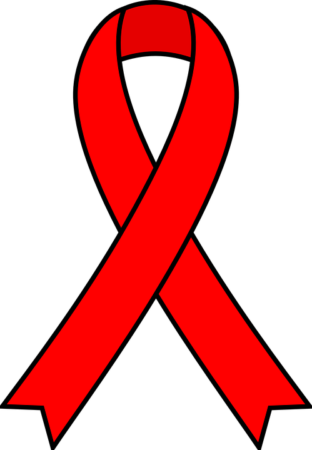As the rate of HIV infection continues to increase in South Africa despite awareness campaigns and improved access to testing, we are faced with a situation where ART (Anti Retroviral Treatment) is the last resort for survival, let alone an acceptable quality of life, for thousands of people in Orange Farm alone. In Orange Farm, the ART project, deals with some 1200 people on a regular basis. The number on ART is 823 and we are assisting a further 35 people to prepare themselves to go on ART.
All ART patients are required to visit the clinic once a month to collect their medication and have further blood tests taken, if necessary. Each one is visited by Home Based Carers at least four times a month to make sure that they are taking their medication as prescribed, that they are not suffering from any of several types of side-effects that often accompany this very toxic medication, that they have sufficient food and, most essential but very difficult, to ensure that they are not living a lifestyle that would militate against the effectiveness of the treatment.

Because we monitor our patients with great love and care our counselors are able to deal with any problems before they become serious. Substance abuse is a huge problem in Orange Farm and many patients tend to revert to their earlier habits as soon as they begin to feel better. Recently, we had very sad case: Thandi, 22 years old, was brought to us by her family with a CD4 count of 3 (450 is normal) and close to death. We nursed her back to health and saw her in blooming health after 6 months on treatment. She complained that her family was abusing her because she did not bring any income into the home, so we put up a shack for her and provided her with supplementary feeding.
A year later I was called to the clinic to see what Thandi had done to herself: she had fallen back into the habit of substance abuse and promiscuity and was resistant to any medication we could give her. The doctor, the nurses and all the staff, myself included, were in tears at the sight of the miserable, haggard scrap of humanity she had made herself into. She died two days later. Fortunately that is a rare case.
The vast majority of our patients are living happy productive lives, trying to grow their own vegetables to provide the food they must have in order for the medication to work properly. At present we have 62 percent of our patients back at work or doing “piece” work. When I go shopping in and around Orange Farm I often meet one of our patients cleaning or selling. They look so well and happy that you would never believe that they were close to death when they came to us. Our project also monitors all patients for signs of TB. PWA’s are particularly susceptible to TB infection which, if not diagnosed and treated immediately symptoms are detected, will kill an otherwise healthy ART patient in a matter of weeks.
We pray with and for our patients, and all PWA’s, every day and make use of every opportunity we get to celebrate with them their gratitude for the new life they have been given and the joy we have in being of service to people who, but for us, would have died long ago. Dealing with stigma is still a very real challenge to many of the people in Orange Farm who are living with HIV/AIDS. They are still afraid to disclose their status in case the members of the community or, more sadly, of their families, reject, disown or even kill them when it is discovered that they are taking Anti Retroviral Treatment. For this reason we have to be very careful when we visit their homes that the neighbours do not suspect that we are working with PWA’S.
Despite the obstacles we have made significant progress in assisting those in the advanced stages of AIDS and educating their communities in the acceptance and support of their affected brothers and sisters. At a presentation I was giving on HIV/AIDS I made the following statement: there are only two types of people in today’s world: those affected WITH HIV/AIDS, and those affected BY HIV/AIDS. Once we realize that HIV/AIDS is everyone’s problem, we, ALL of us, will unite to solve it.
Elaine Pearton rsm
South African Province


